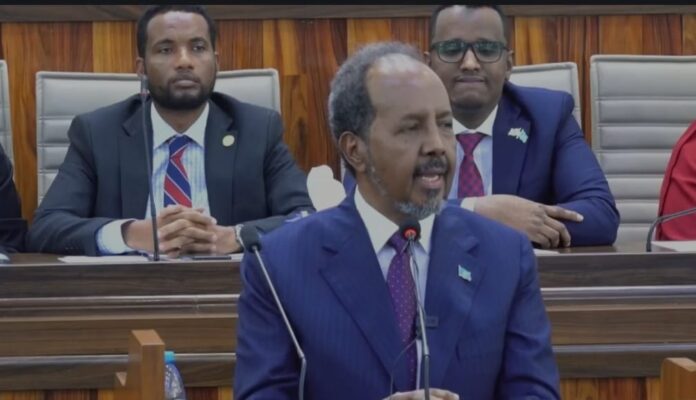Somalia has been recovering decades of civil strive and the country is trying to rebuild itself. Every institution suffers shortage of competent employees and staffed with people with little skills even in the top offices of the country and corruption is rife in every level of Somali institutions and there is no exception.
The Somali spinter story has become a headline in every news outlet. However, the problem is endemic and affects every institution, including the security services, where senior officers are allegedly working to undermine the very institutions they have sworn to protect.
It was not surprising issues to Somalis that a big scandal has hit the Federation of Somali Athletics after a corrupt official allegedly sent an untrained athlete to participate in a highly competitive 100-meter sprint at the China University Games.
The Somali runner became the slowest sprinter in history. Certainly, it was not the fault of the athlete, but it was the fault of the corrupt official and people who put that official in a position of authority.
In Somalia, corruption has been a common knowledge to all. The people are fed up now and demand some form of radical changes to be made quickly…
That state of affairs has been ongoing for some time and has reached a point where the President himself has declared a war on corruption and corrupt officials. Many senior officials were arrested last month, and some have fled overseas.
What needs to be done after this scandal?
Addressing corruption requires a multi-faceted approach to effectively combat this serious problem. Here are some suggestions that can be considered:
■ Strong legal framework:
Enact and enforce comprehensive anti-corruption laws that cover all sectors and levels of government. Ensure transparency and accountability in the public sector by implementing stringent regulations and codes of conduct.
■ Independent anti-corruption agencies:
Establish independent and well-resourced agencies to investigate and prosecute corruption cases. These agencies should have the power to hold both public officials and private individuals accountable for corrupt practices.
■ Strengthening institutions:
Improve the capacity, integrity, and independence of judiciary, police, and other relevant institutions to handle corruption cases. Provide specialized training to officials and ensure they have the necessary resources to carry out their duties effectively.
■ Promote transparency and accountability:
Encourage public access to information, financial disclosures, and asset declaration by public officials. Implement mechanisms to monitor public procurement processes and ensure a fair and competitive bidding system.
■ Whistle-blower protection:
Establish mechanisms to protect and encourage individuals who report corruption. Ensure that whistle-blowers are shielded from retaliation and provided with necessary support and incentives.
■ Encourage citizen participation:
Promote a culture of active citizenship and engagement. Empower civil society organizations, media, and citizen groups to report corruption, advocate for transparency, and monitor public institutions.
■ International cooperation:
Collaborate with international organizations and partner countries to exchange information and expertise, as well as to recover stolen assets. Ratify and implement international anti-corruption conventions to demonstrate a commitment to fighting corruption globally.
■ Ethics education:
Integrate ethics and anti-corruption education at all levels of education, from schools to universities, to cultivate a culture of integrity and ethical behavior from an early age.
■ Encourage technology-based solutions:
Leverage technology and digital platforms to promote transparency, streamline public services, and reduce opportunities for corruption. Implement e-governance initiatives and online platforms for reporting and tracking corruption cases.
■ Monitoring and evaluation:
Establish mechanisms to monitor and evaluate the effectiveness of anti-corruption measures regularly. Use data and feedback to make necessary adjustments and improvements to existing strategies.
The uncompromising elimination of Corruption
It is important to tailor these approaches to the Somalia situation and these challenges of dishonesty can be eliminated in due course.
The government has to take into account the legal and institutional frameworks already in place and if necessary introduce new laws.
Effective implementation requires the commitment and cooperation of all stakeholders, including the government, civil society, the private sector, and citizens.
As matter of urgency, President Hassan Sheikh Mohamud and his government have no other choice but to start a process to clean up the system, but that needs knowledge, consistency, manpower and upholding the same level of accountability for everyone.
As long as there are senior people who are corrupt and feel that they are above the law, every effort will end up in a big disappointment for all.
The end
Mohamed Mohamud Adde
An academic and Political Analyst


